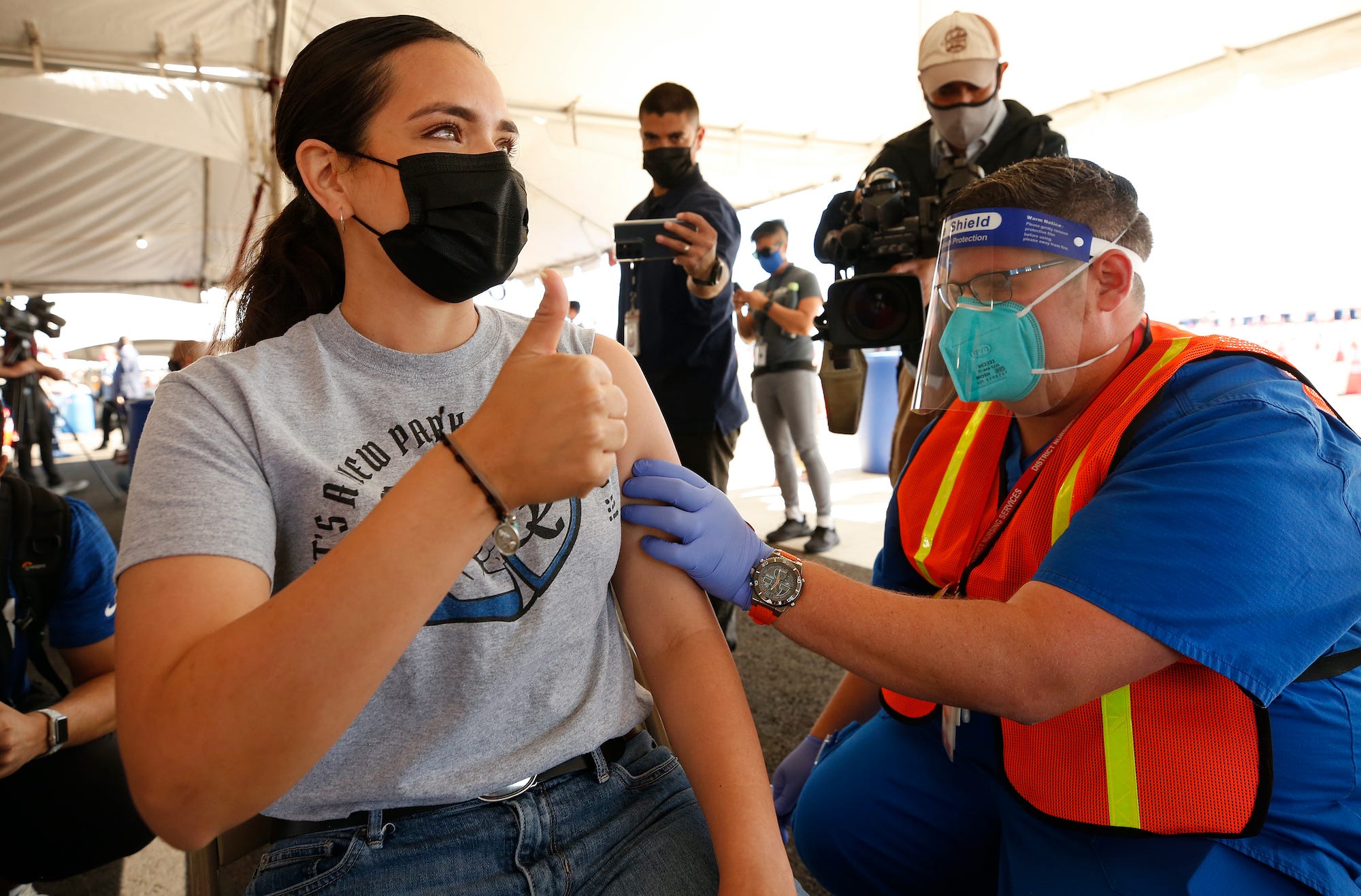
Al Seib / Los Angeles Times via Getty Images
- President Joe Biden has directed states to make vaccines available to all adults by May 1.
- Many states are still prioritizing shots for teachers and the elderly.
- Some states will start vaccinating younger age groups and restaurant workers soon.
- See more stories on Insider's business page.
President Joe Biden has directed states to make coronavirus vaccines available to all adults by May 1.
A few states, including Colorado, Massachusetts, and Utah, are poised to reach that milestone next month, but no state has opened vaccinations to the general population yet.
State vaccination timelines vary: Some have more priority tiers than others, or broader eligibility requirements. In most states, the vaccine phases at this point don't neatly follow those outlined by the Centers for Disease Control and Prevention:
- Phase 1a: Healthcare personnel and long-term care facility residents
- Phase 1b: People ages 75 and older and frontline essential workers
- Phase 1c: People ages 65 to 74, people ages 16 to 64 years with underlying medical conditions, and any remaining essential workers
- Phase 2: All other persons ages 16 and older not already recommended for vaccination
Several states are still working to immunize those high-priority groups. Others are preparing to enter their final phase of priority vaccinations by mid-March.
Here's who's likely to be eligible for vaccines next in each state.
All but 3 states are vaccinating teachers
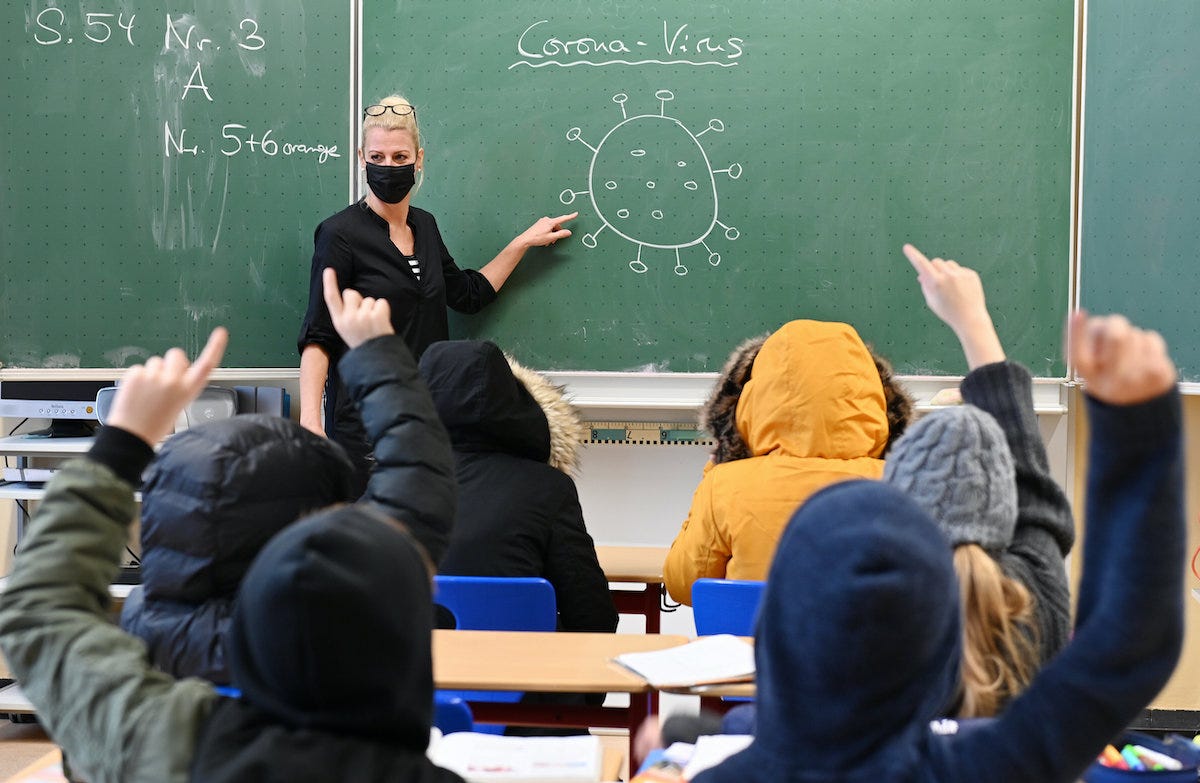
Frank May/picture alliance/Getty Images
At least some K-12 teachers are eligible for vaccines in every US state except Indiana, Montana, and Missouri. But Indiana and Missouri will open vaccines to teachers on Monday, and Montana teachers still have access to shots through a federal partnership with pharmacies.
Pennsylvania started vaccinating teachers on Thursday. New Hampshire teachers began receiving shots through regional clinics on Friday, but they won't be eligible to sign up for the vaccine at state sites until Wednesday.
Two states currently limit teachers' vaccine eligibility based on their age: In West Virginia, teachers ages 50 and older have been eligible to get vaccinated since January, then the state opened vaccinations to teachers in their 40s on March 3. Teachers must also be at least 50 years old to get vaccinated in Florida.
Grocery workers are getting shots in around 25 states
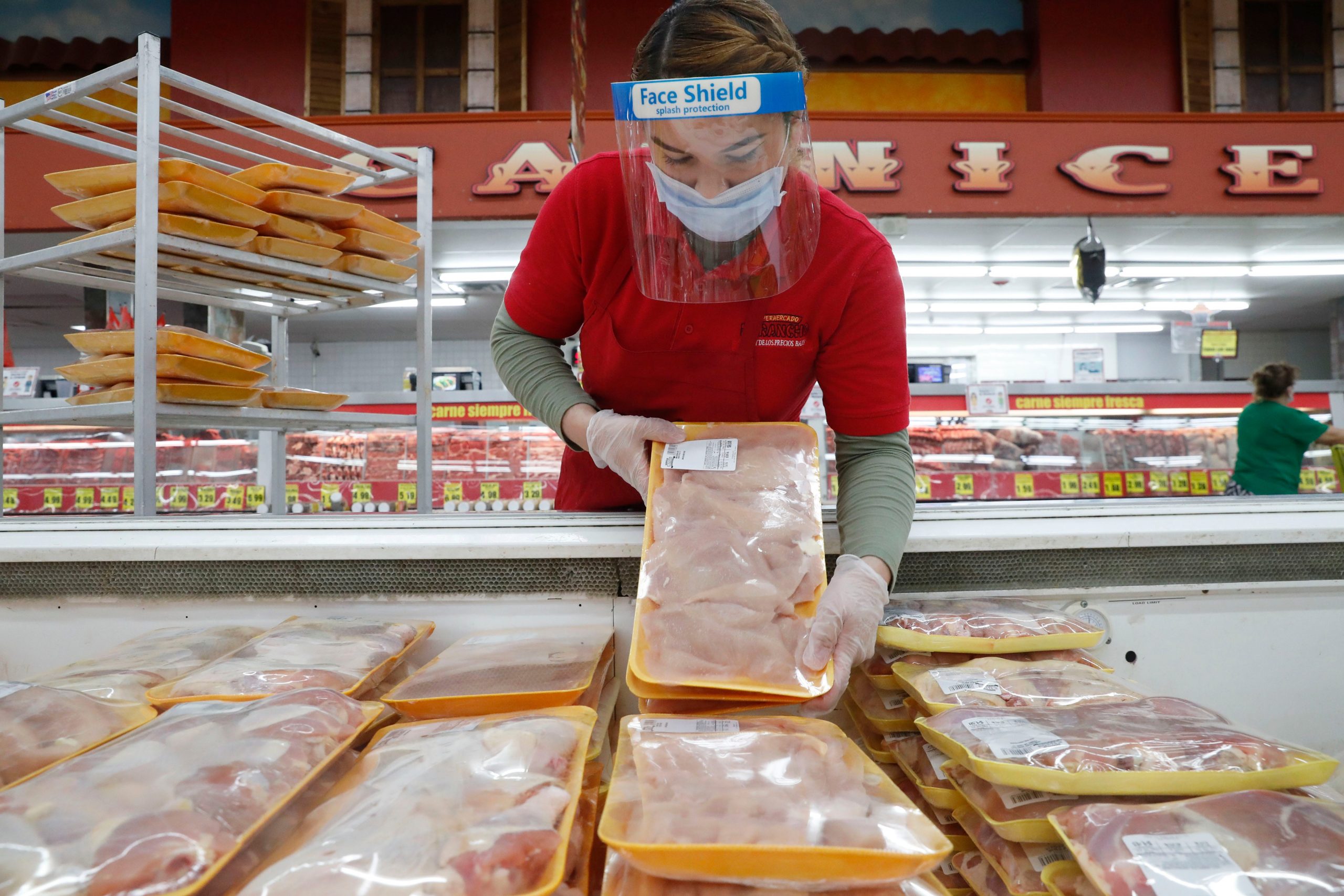
LM Otero/AP Photo
Roughly half of US states are vaccinating at least some of their grocery-store workers, according to a New York Times survey. These workers fall into the CDC's second priority group, Phase 1b.
Grocery-store workers will be eligible for vaccines in Washington starting Wednesday and in Pennsylvania starting March 28. Louisiana has said grocery-store workers will be part of its next priority tier, but it's not clear when those vaccinations will open up.
The following states are already vaccinating grocery-store workers: Alabama, Alaska, Arizona, Arkansas, California, Colorado, Delaware, Hawaii, Idaho, Illinois, Kansas, Kentucky, Maryland, Michigan, Minnesota, Nebraska, Nevada, New York, North Carolina, North Dakota, Oklahoma, South Carolina, Virginia, Wisconsin, and Wyoming.
Restaurant workers are eligible for shots in at least 17 states
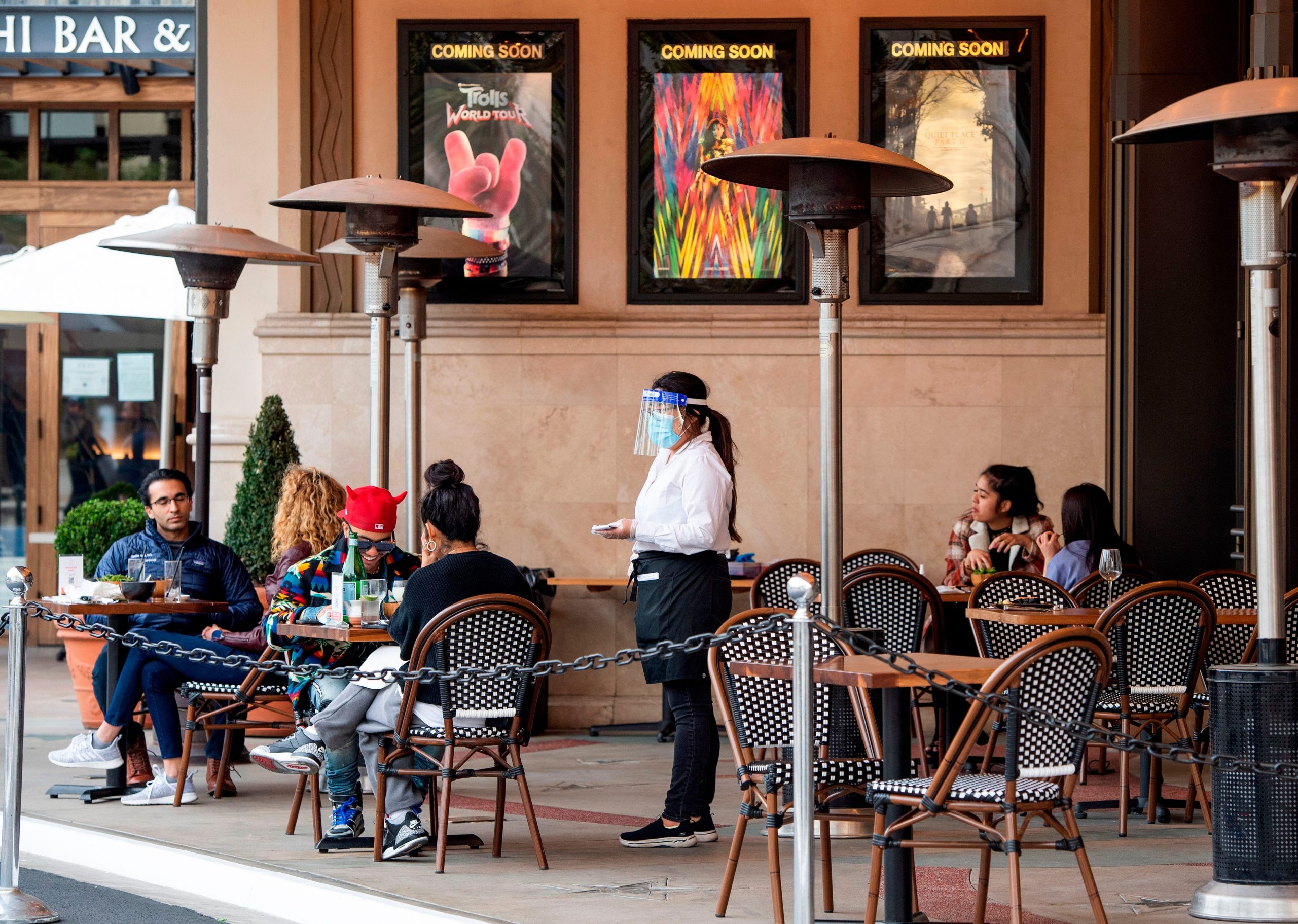
Valerie Macon/AFP/Getty Images
At least 17 states are vaccinating restaurant workers, which fall in the CDC's Phase 1c priority group. These states include Alaska, Arizona, California, Kansas, Kentucky, Michigan, Minnesota, Nebraska, Nevada, New York, North Carolina, North Dakota, Oklahoma, Pennsylvania, South Carolina, Virginia, and Wisconsin.
Hawaii will open up vaccinations to restaurant workers on Monday. Colorado expects to do the same on March 21.
People in their 60s are getting vaccinated in 18 states
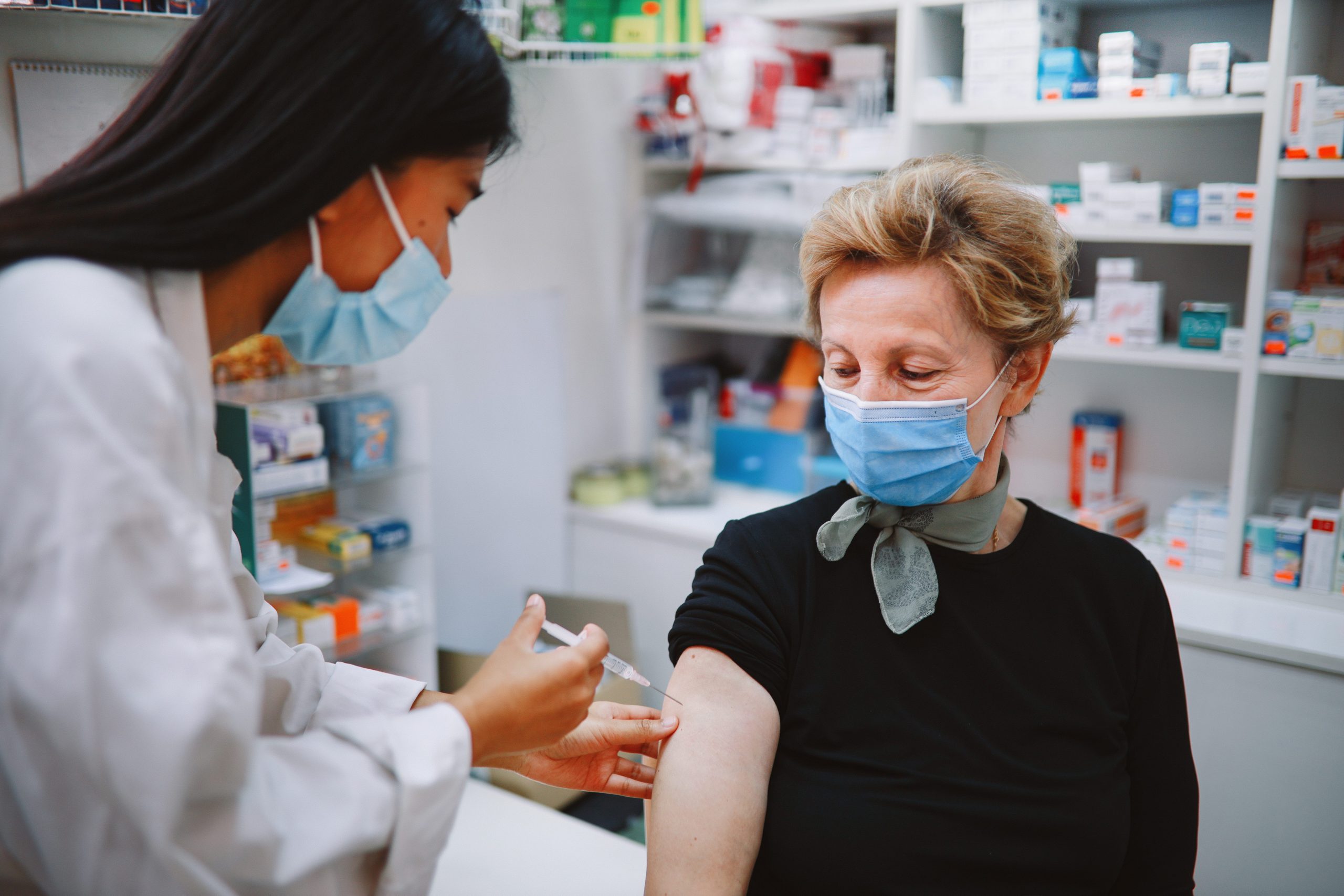
lechatnoir/Getty Images
The CDC doesn't recommend prioritizing adults under 65 for vaccines yet, since data shows that the risk of severe COVID-19 increases with age. Still, US adults ages 50 to 64 are 25 times more likely to be hospitalized with COVID-19 than 5- to 17-year-olds.
For that reason, around 18 states are offering vaccines to some people younger than 65: Alaska, Arizona, Colorado, Connecticut, Indiana, Kentucky, Maine, Michigan, Mississippi, Montana, Nevada, New York, Ohio, Rhode Island, South Carolina, Utah, West Virginia, and Wyoming.
Some states have made age the primary determining factor for vaccine eligibility. Rhode Island, for instance, expanded eligibility to residents ages 60 and up on Friday. From there, it will offer vaccines to residents in their 50s, followed by residents in their 40s.
Maine has similarly been vaccinating residents in their 60s since March 3. Starting April 1, it will begin vaccinating those 50 and older.
A dozen states are immunizing people in their 50s
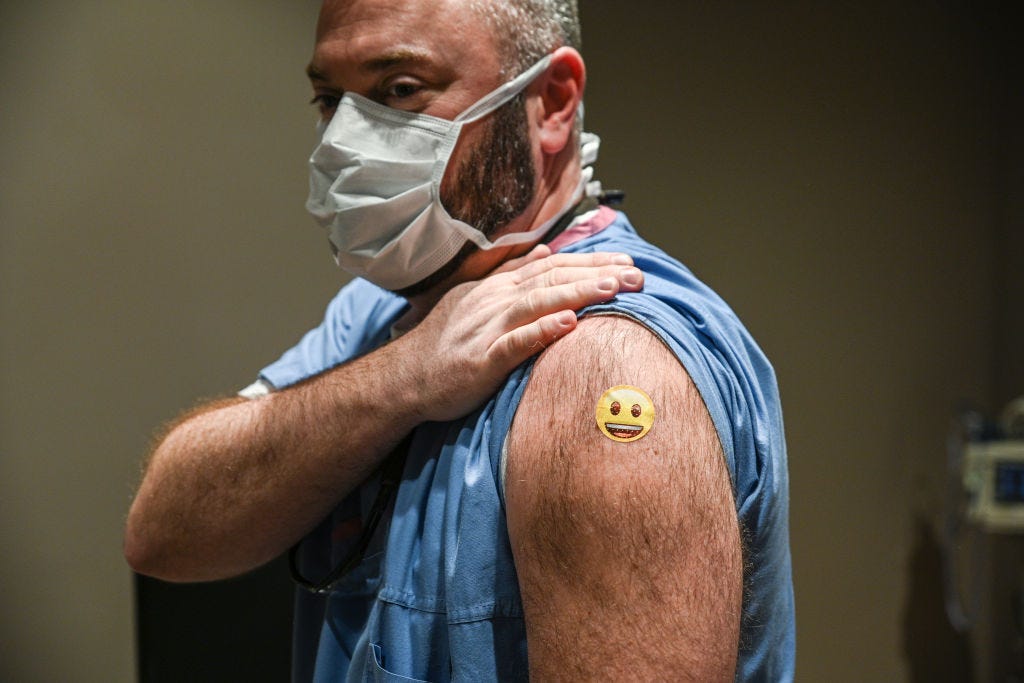
Jon Cherry/Getty Images
Of the states offering vaccines to younger groups, 12 are already giving shots to people in their 50s.
Alaska, Arizona, Connecticut, Nevada, South Carolina, and Vermont are now vaccinating people ages 55 and up, while Indiana, Michigan, Ohio, Utah, Wyoming, and West Virginia are vaccinating people ages 50 and up.
Georgia will start giving shots to people 55 and up on Monday. Colorado will start vaccinating people in their 50s on March 19.
All but 10 states are immunizing adults with high-risk medical conditions
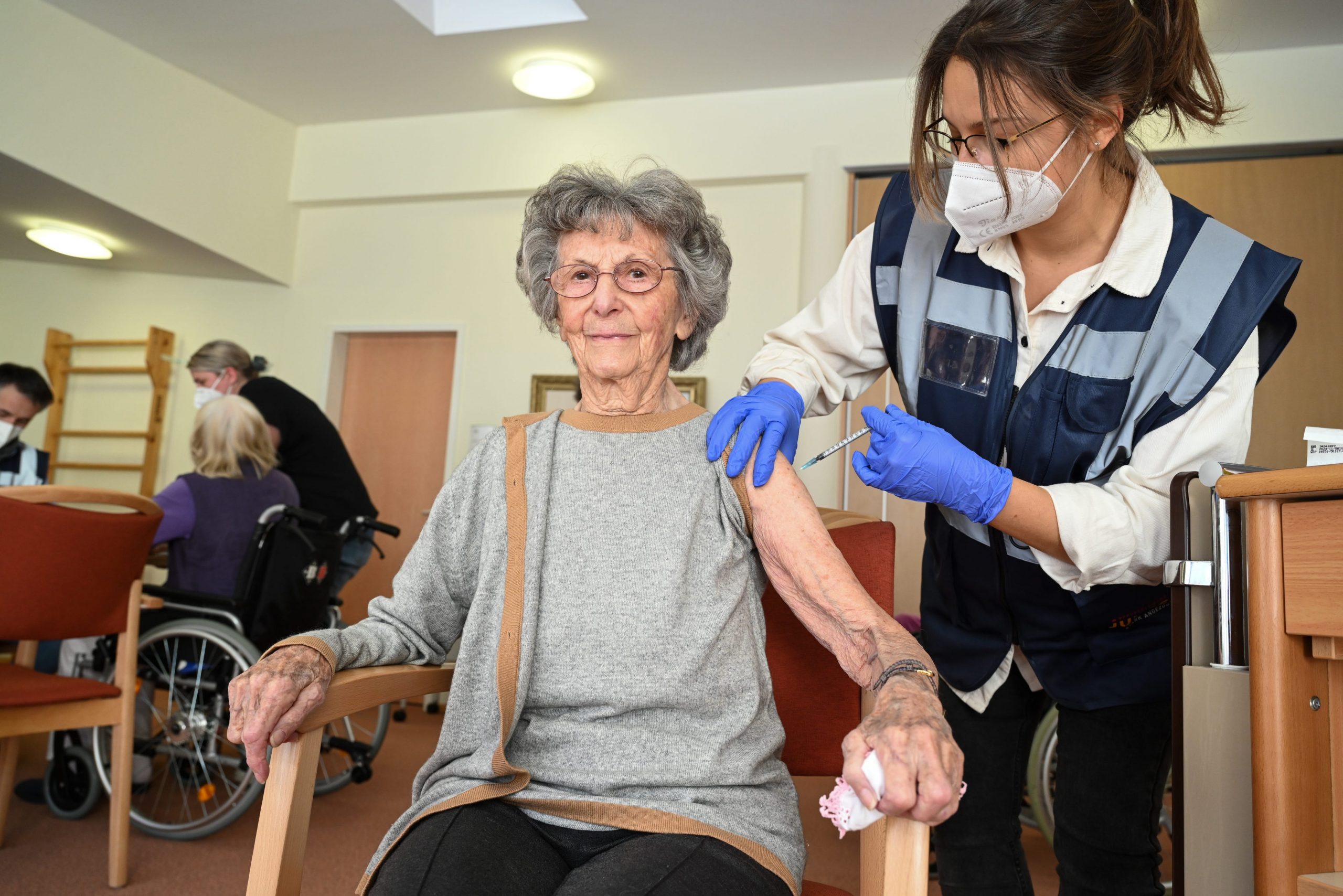
Felix Kästle/picture alliance via Getty Images
All but 10 states - Alabama, Connecticut, Delaware, Hawaii, Idaho, Kansas, Maine, Nebraska, North Carolina, and Washington - are vaccinating adults with high-risk medical conditions.
Hawaii will expand vaccine eligibility to these adults on Monday. North Carolina will do the same on Wednesday, followed by Alabama on March 22. Idaho, Kansas, and Washington hope to vaccinate high-risk adults in April.